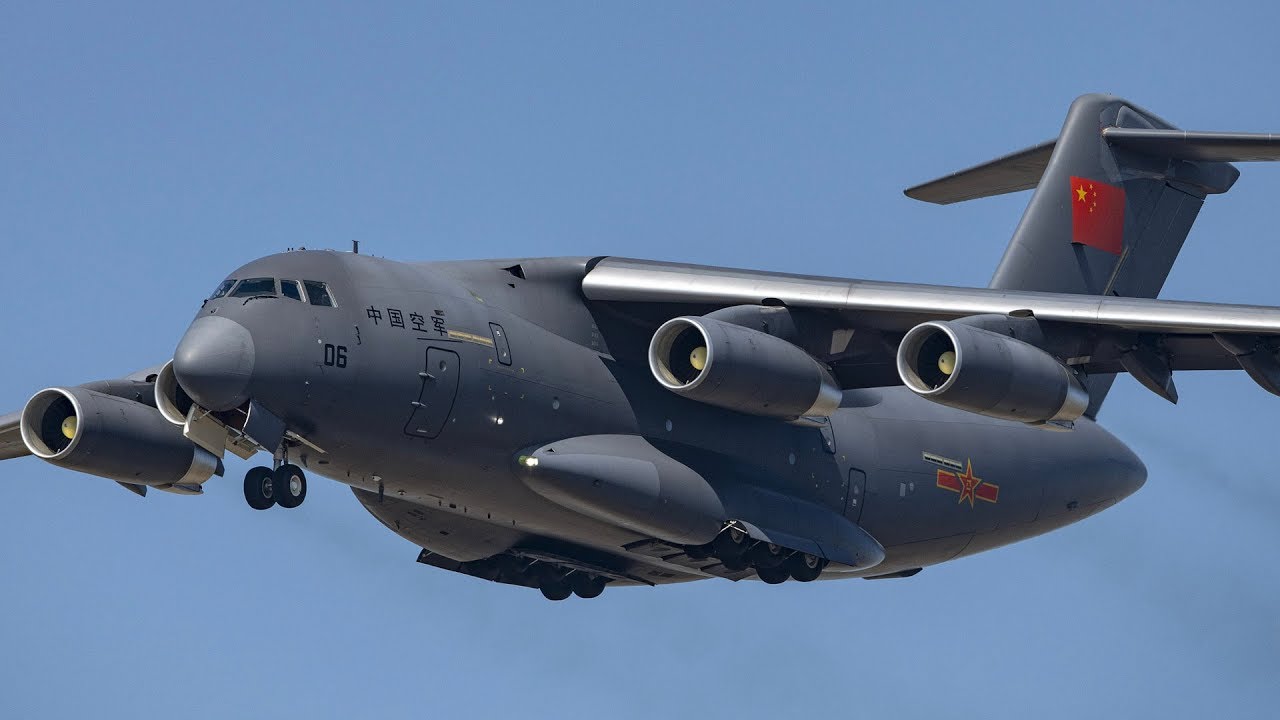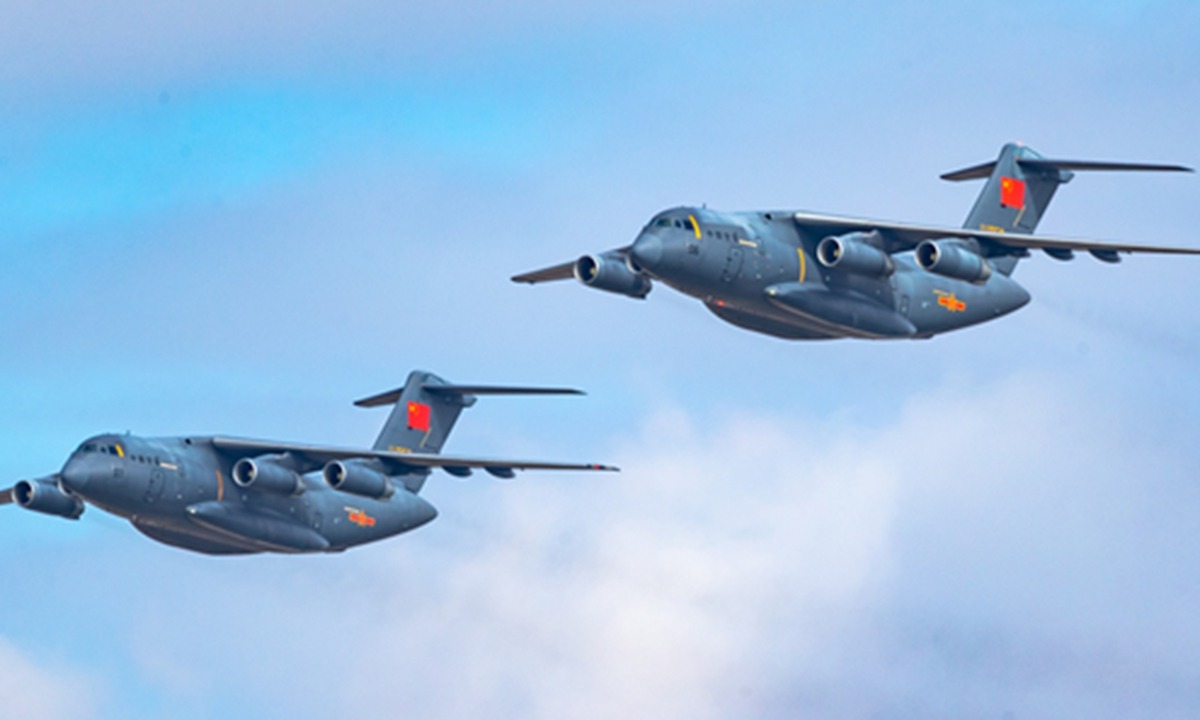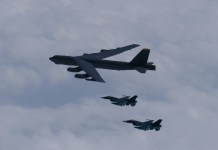China’s ambition to project power beyond the first chain of Islands is largely driven by its largest multi-role tanker (MRT) Aircraft, the Y-20, also known as ‘Chubby Girl.’
Rarely seen outside China, the multi-role transport aircraft has been the latest export offering by the Chinese defense industry. The Y-20 E (export version), powered by four Shenyang WS-20, has made China a third country after Russia and the US to design and develop its heavy military transport aircraft.
The Y-20 is officially called “Kunpeng” after a mythical Chinese bird and nicknamed “Chubby Girl” for its appearance. It debuted at the Dubai Air Show in December 2023. Media reports suggest that it is the largest military aircraft currently in production, and Beijing recently offered it to Nigeria.
Unlike the previous Russian engines powering the variants of Y-20, the new engines will give it far superior endurance and air-refueling capability that will increase its reach beyond the first island chain, a string of islands encumbering the seas around China.
The first island chain consists of islands, including Taiwan, Okinawa, and the Philippines, which China sees as the first line of defense. The “second island chain” in the Western Pacific runs from south-eastern Japan to Guam and south to Indonesia.
The Y-20 served as a support aircraft for the Ba Yi aerobatic team but was also displayed at the Egypt International Air Show at El Alamein.
The high-profile Chinese presence at the Egypt International Air Show also reflects China’s ambition to increase its defense exports to the Middle East and North Africa (MENA).
Most of the region’s countries have been seeing China as an alternative to the Western source of weapons. China is already the largest arms supplier for sub-Saharan Africa (taking a 19 percent share of the market in 2019-23, narrowly overtaking Russia with 17 percent).
Media reports suggest that Egypt is interested in buying 12 J-10C fighters in 2022-23 and might now be interested in the Y-20B.
In August, a Y-20 transported Chinese troops to Tanzania for a counterterrorism drill. The long-distance deployment showcased PLAAF mobility capabilities. It is in sync with the PLAAF’s ambition to project power beyond its borders.
Capability-wise, the Y-20 is similar to the US military’s workhorse C-17, which has been a game changer in transporting troops and cargo worldwide since its induction in 1995.
The American strategic heavy lifter can easily haul troops and ammunition across continents, for instance, from the US to Afghanistan.
Since its induction into the service, the Y-20’s versatility has helped the PLAAF quickly mobilize large forces and cargo, with its payload capacity of 73 short tons.
The Y-20’s payload capacity makes it easy to transport China’s biggest tank, the ZTZ99, along with other vehicles and supplies. With Russian engines, the Chubby Girl has a range of 4,850 miles while carrying 40 tons of cargo and 2,800 miles when fully laden.

Y-20 Gives Wings To PLA-Air Force Ambitions
The older version of the Y-20 lacked the ability to take off from ‘hot and high’ airfields, while the US C-17 could. Taking off from hot and high airfields can seriously affect the performance of all aircraft.
Taking off from such airfields can be tricky because of the lack of lift, reduced engine power, and reduced climb performance. To overcome these challenges, militaries must reduce the take-off weight, which is known as a Performance Limited Takeoff Weight (PLTOW).
The images of the re-engined aircraft, re-designated as YY-20B, were released on the Chinese social media site Weibo in December 2023. They show four Shenyang WS-20 engines replacing the Soloviev D-30KP2s that powered the earlier version.

Along with the hot and high capability, the WS-20 turbofan engine will give the Chubby Girl short takeoff capabilities and enhanced range. In addition to functioning as a transport, the Y-20 could be outfitted as a refueling tanker for other military aircraft or used as a strategic command center to coordinate fighter jets and drones in combat.
The aircraft will increase the PLAAF’s aerial combat reach over the South China Sea. Its fighter jets can spend more time airborne and stake sovereign claims over large swathes of the South China Sea.
Dubbed “a plane from China that the US truly fears,” Y-20 would augment the Chinese military’s amphibious attack capability as well. Apart from delivering reinforcements to the ground troops in an amphibious landing area, it could enable fighter aircraft to attack to gain air superiority.
According to military expert Kris Osborn, the Y-20 will double the range of the Chinese 5th-generation fighter jets like the J-20 and J-31.
“While many of China’s fighters are within range of attacking Taiwan on a single sortie, expanded combat radius would enable much longer ‘dwell time’ for fighter planes searching for targets in the skies above Taiwan. Furthermore, greater power projection would expand the reach of its growing fleet of aircraft carriers, bringing increased ability to hold areas at risk from farther ranges,” Osborn opined.
The biggest advantage PLAAF has is that, unlike the US Air Force’s KC-46 tanker, which is a different aircraft than C-130s, the Y-20 can be easily configured for different roles.
When required, the Y-20 aircraft can be fitted as an airborne early warning and control version. The new engines will give the Chinese Air Force the capability to carry out offensive missions across continents, a capability imperative as it creates a network of overseas military bases to match the US.




